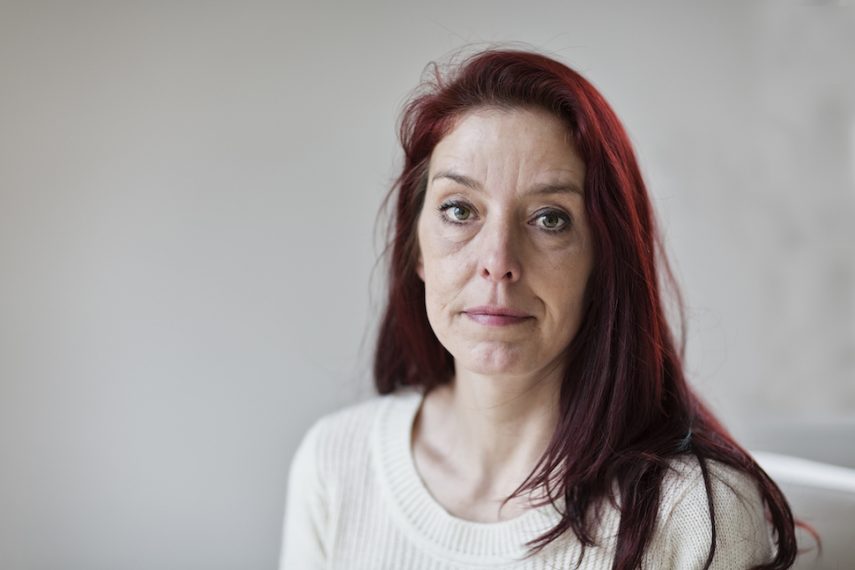Schizophrenia and Disordered Eating: When Your Loved One is Suffering from a Co-Occurring Eating Disorder

Schizophrenia with secondary eating disorders is common. The relationship between the two is complicated and not fully understood. If you have a loved one struggling with psychotic symptoms of schizophrenia and unhealthy eating behaviors, it is essential to get them a differential diagnosis. This will help mental health professionals determine the best course of treatment, which will include managing schizophrenia long-term while also learning healthier eating habits
If you have a family member with schizophrenia, there is a risk that they will also show some signs of disordered eating. These may include binge eating, binging and purging, or obsessing over calories and weight, among many other unhealthy behaviors.
There is a significant connection between schizophrenia and eating disorders, although it is not well understood.
If your loved one is about to embark on treatment for schizophrenia, be sure they are screened for an eating disorder so it can be addressed in treatment.
Signs of Disordered Eating
There are several diagnosable eating disorders, but some are more common as secondary disorders of schizophrenia. These include:
- Anorexia nervosa. Anorexia is characterized by a fear of gaining weight, severely restricted calorie intake, distorted perceptions of one’s own body and size, and unhealthy low body weight.
- Bulimia nervosa. Bulimia causes cycles of binging on food and then purging. Binging means eating far too much food at once and in a manner that is out of control. Purging may take the form of vomiting, using laxatives, restricting food intake, or extreme exercising.
- Binge eating disorder. Someone with this disorder binges and loses control but does not purge afterward. But they do feel intense guilt, shame, and disgust after binging.
- Night eating syndrome. Mental health professionals categorize this type of disordered eating as an “other specified feeding or eating disorder.” The signs are eating a lot at night, up to 25 percent of the day’s calories, after dinner or throughout the night. Some people with schizophrenia struggle with insomnia, which increases the risk for night eating.
The prevalence of disordered eating is higher in people with schizophrenia than in the general population. So if you have a loved one diagnosed with schizophrenia, or who you believe may have this condition, any signs of an eating disorder are important to note and share with doctors.
The Importance of a Differential Diagnosis for Secondary Anorexia
The relationship between disordered eating and schizophrenia is not always straightforward. This is why a differential diagnosis is so important. This is when mental health experts determine the best possible diagnosis in a patient with symptoms similar to more than one condition.
With schizophrenia and anorexia, there are a few possible diagnoses that require different approaches to treatment. For instance, an individual may have anorexia first and then develop schizophrenia. An eating disorder may develop as a secondary condition to schizophrenia. And in some cases, a person with anorexia will develop psychotic symptoms but doesn’t necessarily have schizophrenia.
A differential diagnosis with anorexia is especially challenging as compared to other eating disorders because of the distorted perceptions it causes. Someone with anorexia sees their body as fat or overweight, when in reality it is very thin. This kind of psychosis could be a symptom of schizophrenia or independently caused by anorexia.
Distinguishing among all these possibilities is important for guiding treatment. If your loved one can be diagnosed with schizophrenia, treatment will focus on this condition while still addressing disordered eating. There is a chance that by alleviating psychotic symptoms, unhealthy eating behaviors will begin to disappear.
Getting Treatment for Schizophrenia and Disordered Eating
A good residential treatment facility will give your loved one the best possible differential diagnosis. This will be the first step in planning treatment, because it informs what comes next. For patients with schizophrenia and secondary anorexia or another eating disorder, treatment must focus on the psychotic condition with an emphasis on disordered eating.
It’s not easy to get this integrated care outside of a residential setting. Schizophrenia alone is a serious condition that requires long-term care in a safe and supervised place. The most effective treatment will address all mental health issues at the same time, especially when they are so interconnected.
Your loved one will get an individualized plan for treatment, but the center of care will be therapy and medical treatment. Both of these are essential for symptom management. Antipsychotic drugs can help reduce symptoms and psychotic episodes, but therapy will help your loved one learn to manage their illness over the long-term.
Therapy for schizophrenia may include behavioral interventions that help your loved one change their thought patterns and behaviors. It may also involve social skills training, relationship and family counseling, and group support. In a residential setting, your loved one will also have access to a wide variety of other types of supplemental care like alternative therapies, holistic medicine, vocational training, and life skills training.
Your loved one can also benefit from including disordered eating in the treatment plan. It is important to address an eating disorder in therapy, to learn and practice coping strategies to prevent unhealthy eating behaviors. Additionally, treatment can include the development of healthy lifestyle habits like regular exercise and a healthy diet.
Begin Your Recovery Journey Today.
619-466-0547Addressing Antipsychotics and Eating Behaviors
In residential treatment for schizophrenia, patients are likely to be prescribed antipsychotic medications. These can be very helpful in reducing psychotic symptoms, but side effects may include weight gain and changes in attitudes and behaviors toward food and eating. Studies have found that patients on these medications are more likely to binge eat and exhibit compulsive behaviors with respect to food.
While in residential care for schizophrenia, your loved one who is struggling with disordered eating will have the chance to try medications in a safe, controlled environment. If the drugs cause weight gain or change eating patterns, therapists can work with them to plan healthy eating and coping strategies for resisting the urge to binge eat.
The most important thing you can do for your loved one who is struggling is to help them get a diagnosis. Only when their symptoms and conditions are clearly understood can effective treatment begin. An individualized treatment plan in a residential facility will help the person you care about learn how to manage and live well with these chronic and disorders.
If you’re concerned about a loved one and believe they may need residential care, we can help. BrightQuest offers long-term treatment for people struggling with complex mental health illnesses and co-occurring disorders. Contact us to learn more about our renowned program and how we can help you or your loved one start the journey toward recovery.






